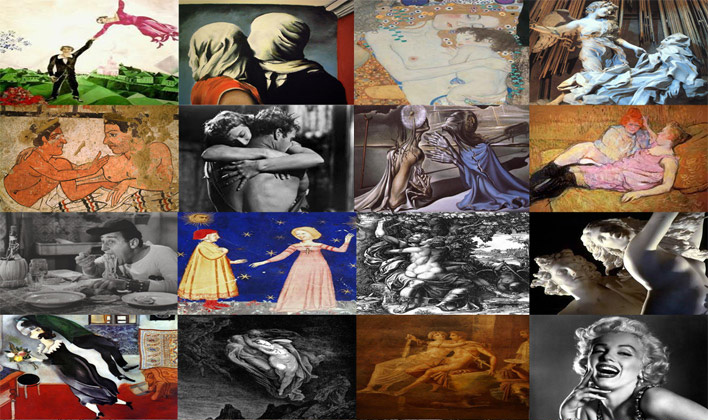Angelica, the shape of desire in contemporary literature
Abstract
The aim of the article is to demonstrate how the beautiful heroine of Ludovico Ariosto’s Orlando Furioso continued after the Renaissance to charm the collective imagination, becoming a successful literary myth. Above all, during the 20th and the 21st century Angelica, incarnation of unreachable desire, grows more and more complex, taking on all the contradictions and inconsistencies of the present day. A previously evanescent creature, she becomes a flesh and blood woman, victim of her own selfishness and of a regained corporeality. In an age of crisis of values, things couldn’t be different.
A comparative reading of the novels which – whether consciously or unconsciously –summon Ariosto’s character goes to show that every writer, through their book, creates a new Angelica, perfectly recognisable but ever original and different from the others. All of them however, just like the first, are perturbing figures who strongly influence the surrounding reality.
Downloads
References
Bibliografia
Ariosto, Ludovico, Orlando Furioso, Ed. Cesare Segre, Milano, Mondadori, 2008.
Bernardelli, Andrea - Ceserani Remo, “Narrazioni di narrazioni”, Il testo narrativo, Bologna, Il Mulino, 2005: 187-211.
Boiardo, Matteo Maria, Orlando innamorato, Ed. Riccardo Bruscagli, Torino, Einaudi, 1995.
Calvino, Italo, Le città invisibili (1993), Milano, Mondadori, 2012.
Calvino, Italo, “Tre correnti del romanzo italiano d’oggi”, Una pietra sopra, Torino, Einaudi, 1980.
Calvino, Italo, L’Orlando Furioso di Ludovico Ariosto, raccontato da Italo Calvino (1970), Milano, Mondadori, 2009.
Camilleri, Andrea, Il sorriso di Angelica, Palermo, Sellerio, 2010.
Caretti, Lanfranco, “Introduzione”, in Ludovico Ariosto, Orlando Furioso, Ed. Lanfranco Caretti, Torino, Einaudi, 1992: V-XXIX.
Cirillo, Silvana, Alberto Savinio. Le molte facce di un artista di genio, Milano, Bruno Mondadori, 1997.
De Rougemont, Denis, L’Amour et l’Occident (1939), trad. it. L’amore e l’occidente (1998), Ed. Luigi Santucci, Intr. di Armanda Guiducci, Milano, Bur, 2006.
Genette, Gérard, Palimpsestes. La littérature au second degré (1982), trad. it. Palinsesti. La letteratura al secondo grado, Torino, Einaudi,1997.
Giuliani, Alfredo, “Savinio dei fantasmi”, in Savinio, Alberto, Hermafrodito e altri romanzi, Ed. Alessandro Tinterri, Milano, Adelphi, 1998.
Golon, Anne e Serge, Angélique Marquise des Anges (1957), trad. it. Angelica la marchesa degli angeli, Ed. Roberto Ortolani, Milano, Garzanti, 1966.
Golon, Anne e Serge, Le chemin de Versailles (1958), trad. it. Angelica sulla via di Versailles, Ed. Roberto Ortolani, Milano, Garzanti, 1966;
Golon, Anne e Serge, Angélique et le Roi (1959), trad. it. Angelica e l’amore del re, Ed. Roberto Ortolani, Milano, Garzanti, 1966.
Golon, Anne e Serge, Indomptable Angélique (1960), trad. it. Angelica l’indomabile, Ed. Roberto Ortolani, Milano, Garzanti, 1965.
Hoban, Russell, Angelica’s Grotto (1999), trad. it. Il sito di Angelica, Ed. Giovanni Garbellini, Parma, Guanda, 2001.
Lodge, David, Small World. An Academic Romance (1984), trad. it. Il professore va al congresso, Eds. Mary Buckwell – Rosetta Palazzi, Milano, Bompiani, 2007.
Pernigo, Carolina, “Angeliche: riscritture novecentesche del personaggio ariostesco”, Il Ponte, LXVI, 7-8 (lug-ago 2010): 116-125.
Rousset, Jean, Le mythe de Don Juan (1976), trad. it. Il mito di don Giovanni, Ed. Armando Marchi, Parma, Pratiche, 1980.
Santacroce, Isabella, Revolver (2004), Milano, Mondadori, 2011.
Savinio, Alberto, Angelica o la notte di Maggio (1927), in Hermafrodito e altri romanzi, Ed. Alessandro Tinterri, Milano, Adelphi, 1998: 353-437.
Tomasi di Lampedusa, Giuseppe, Il Gattopardo (1958),Milano, Feltrinelli, 2008.
Trocchi, Anna, “Temi e miti letterari”, in AaVv, Letteratura comparata, Ed. Armando Gnisci, Milano, Bruno Mondadori, 2001: 63-84.
Turchi, Marcello, “Sui personaggi del ‘Furioso’”, La rassegna della letteratura italiana, 79 (genn-ago 1975): 129-145.
Violi, Patrizia, Affari d’amore, Milano, Baldini Castoldi, 2012.
Copyright Notice
You are free to copy, distribute and transmit the work, and to adapt the work. You must attribute the work in the manner specified by the author or licensor (but not in any way that suggests that they endorse you or your use of the work).









